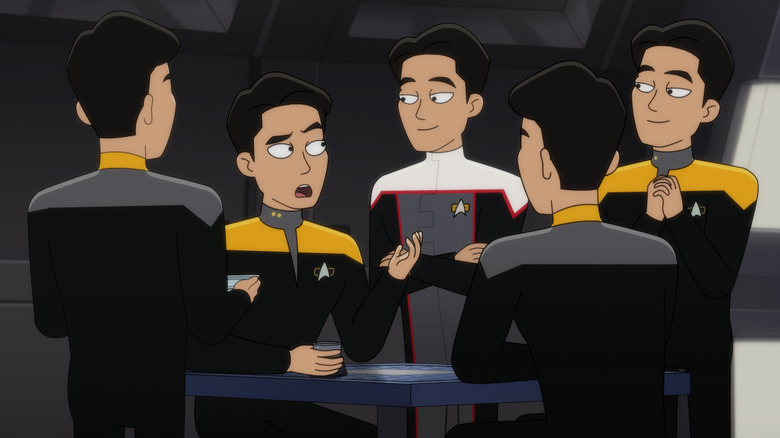
Paramount
This article contains spoilers for the latest episode of "Star Trek: Lower Decks."
The penultimate episode of "Star Trek: Lower Decks" season 5 (and the series itself), titled "Fissure Quest," pulls away from the U.S.S. Cerritos, and instead takes place mostly on a ship called the U.S.S. Anaximander. This vessel is captained by one William Boimler (Jack Quaid), a duplicate of Brad Boimler, created via transporter accident. Captain Boimler is a member of the ultra-secret Section 31 and has been assigned a very important, very covert task: he is to sail around the galaxy, patching up the holes in the spacetime continuum that lead to parallel universes.
Boimler's crew is made up entirely of characters from other "Star Trek" shows, albeit slightly altered, parallel universe versions of them. They are what the Marvel Cinematic Universe would call "variants." Trekkies will be delighted to see that the Anaximander's doctor is Elim Garak (Andrew Robinson) from "Star Trek: Deep Space Nine," and that he's married to a sentient hologram of Dr. Bashir (Alexander Siddig), also from "Deep Space Nine." Meanwhile, the bulk of the Anaximander's crew is made of variants of Harry Kim (Garrett Wang) from "Star Trek: Voyager."
Whenever Captain Boimler encounters a new dimensional aperture, however, he rolls his eyes. He's tired of meeting parallel versions of the same damn people. What's next? Evil Picard? Borg Kirk? Human Worf? To Boimler, meeting slight spins on all-too-familiar characters is mind-numbingly dull. "That's all the multiverse is," he yells in outrage. "Just lazy, derivative remixes!" Boimler's exhaustion with multiverse variants ultimately becomes one of the driving plot points of the episode.
The satire is clear: the writers of "Lower Decks" are poking fun at the multiverse trend that has risen to prominence in recent years.
The writers of Lower Decks acknowledge the multiverse is uncreative and boring
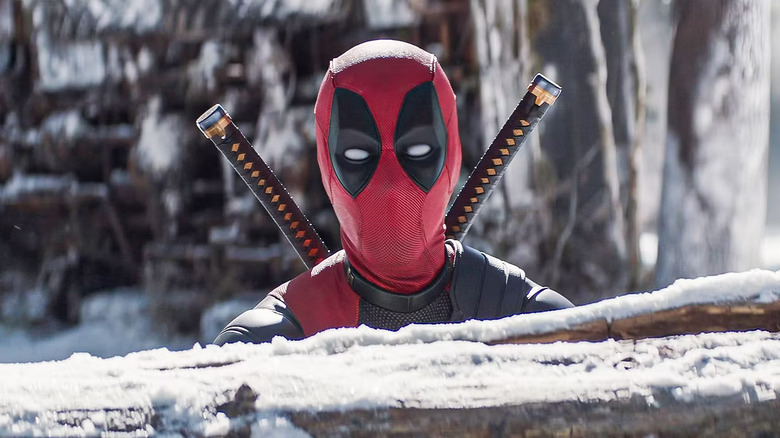
Marvel Studios
The idea of a multiverse, at least as it's been presented in superhero films from Marvel and DC, was tired before it started. If every single Marvel character has millions of variants spread across the multiverse, and other characters could merrily skip between universes without much issue, then the consequences of death would no longer be relevant. One Wolverine could die, for instance, and Deadpool could happily skip over one dimension, grab another Wolverine, and replace the original without too many issues. The multiverse seems like a creativity cul-de-sac.
Multiverse stories also have a habit toward crass fan service, allowing filmmakers to bring back any and all actors from any other superhero movies. Both "Spider-Man: No Way Home" and "Deadpool & Wolverine" made huge amounts of money gathering together various iterations of familiar characters as they appeared in multiple rebooted franchises over the last 20 years. "Deadpool & Wolverine" even featured an army of Deadpool duplicates, each one with a notable quirk or distinguishing feature. One was nice. One was a baby. One wore a sombrero. As Boimler said, they were tedious, derivative remixes.
Tom Holland, Andrew Garfield, and Tobey Maguire all played Spider-Men in "No Way Home," pleasing fans of all three, but the multiverse aspects were less interesting in that "Spider-Man" film than its themes of capital punishment. And, of course, the "Spider-Verse" animated movies have featured hundreds upon hundreds of Spider-Man "remixes." Fans seemed fond of the above films, eager to drink down the fan service and unconcerned with the lack of creativity inherent to the premise.
The latest episode of "Lower Decks" takes all of that in kind and kind of smooshes it flat. The multiverse, as Boimler declares, is played out.
Lower Decks is poking fun at Star Trek too
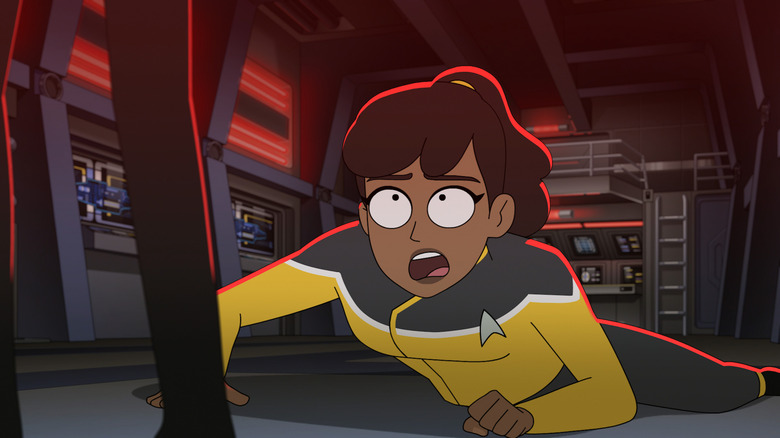
Paramount
Recall, also, that multiverse stories have been rejected as often as they're embraced, and "Lower Decks" isn't just stabbing at some of the most successful films of the last few years. It's also attacking a trend that fails as often as it succeeds while directly making fun of itself, as "Star Trek" has toyed with parallel dimensions quite often.
To the first point: the multiverse aspects of "The Flash" didn't save that film from being one of the biggest bombs of all time. Few seemed to love "Doctor Strange in the Multiverse of Madness." Even the Marvel Cinematic Universe's Kang storyline (set up in "Ant-Man and the Wasp: Quantumania") has been dropped (though, admittedly, that was due to Marvel Studios parting ways with Kang actor Jonathan Majors). Not to mention, did anyone really care when the Vulture (Michael Keaton) made a guest appearance in "Morbius?" The multiverse frequently falls flat, which reveals just how bland the idea is.
But to the second point, "Star Trek" has visited parallel universes before too. One might immediately recall "Mirror, Mirror," the original series episode wherein everyone was evil and the U.S.S. Enterprise was a ship of conquest. That universe was later revisited in both "Deep Space Nine" and "Star Trek: Enterprise."
Or perhaps one might think of "Parallels," the "Next Generation" episode wherein Worf (Michael Dorn) keeps skipping between dimensions without warning. Then, of course, there's the matter of the Kelvin-verse, currently consisting of three movies set in an alternate timeline. Each of these films features characters familiar to longtime Trekkies, only slightly remixed. They are, perhaps, wearing different uniforms, or maybe they're captains instead of lieutenants. Perhaps Tasha Yar is still alive in this dimension.
Whichever way you cut it, Boimler is right. The idea is stale. After seeing the 50th rendition of Captain Kirk, one might long for something new. Boimler is expressing the same exasperation with the multiverse that many viewers likely have. Do you have any new ideas or are you only riffing on the familiar?
Lower Decks is also defending multiverse stories
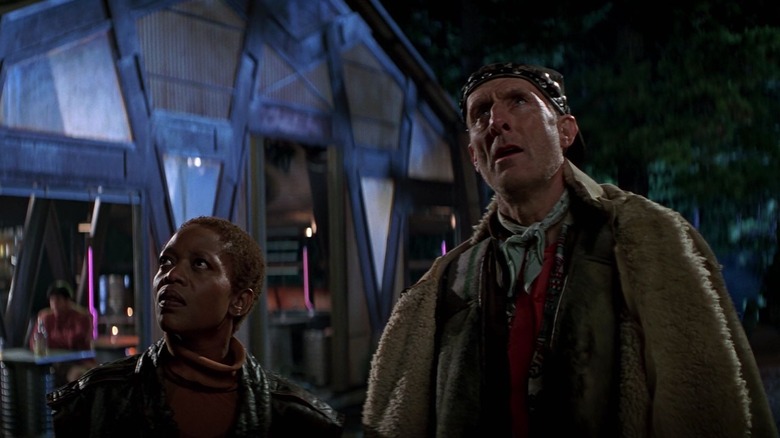
Paramount
At the same time, "Fission Quest" also handily offers a defense of its own well-worn multiverse story. Captain Boimler, in his parallel dimension antics, runs into a starship captain named Lily Sloane (Alfre Woodard), a variant of the character Woodard played in "Star Trek: First Contact." Captain Sloane reveals that she, too, explores the multiverse, but hasn't become weary of meeting duplicates and alternates.
Captain Sloane admits that while it may be tiring to see the same 100 people, only slightly remixed, over and over and over again, she takes a much more diplomatic view. Sloane understands that every single person she meets has their own life and their own personality. It doesn't matter to Sloane if their story resembles that of another person, they still have all the wit, intelligence, quirks, and friendships as anyone else. Sloane adds that she's an explorer, but of the human condition. She loves seeing infinite character changes across the galaxy, and was elated to find that things like integrity, friendship, and tenacity remain constant.
In other words, "Fission Quest" is certainly dismantling and satirizing all the multiverse hoo-hah that we've all become tired with, but it also manages to find a compassionate viewpoint through it all. As audience members, we may have become cynical with the multiverse. If we were actually to live in one, however, we might be more optimistic like Captain Sloane.
The "Star Trek: Lower Decks" series finale premieres December 19, 2024, on Paramount+.


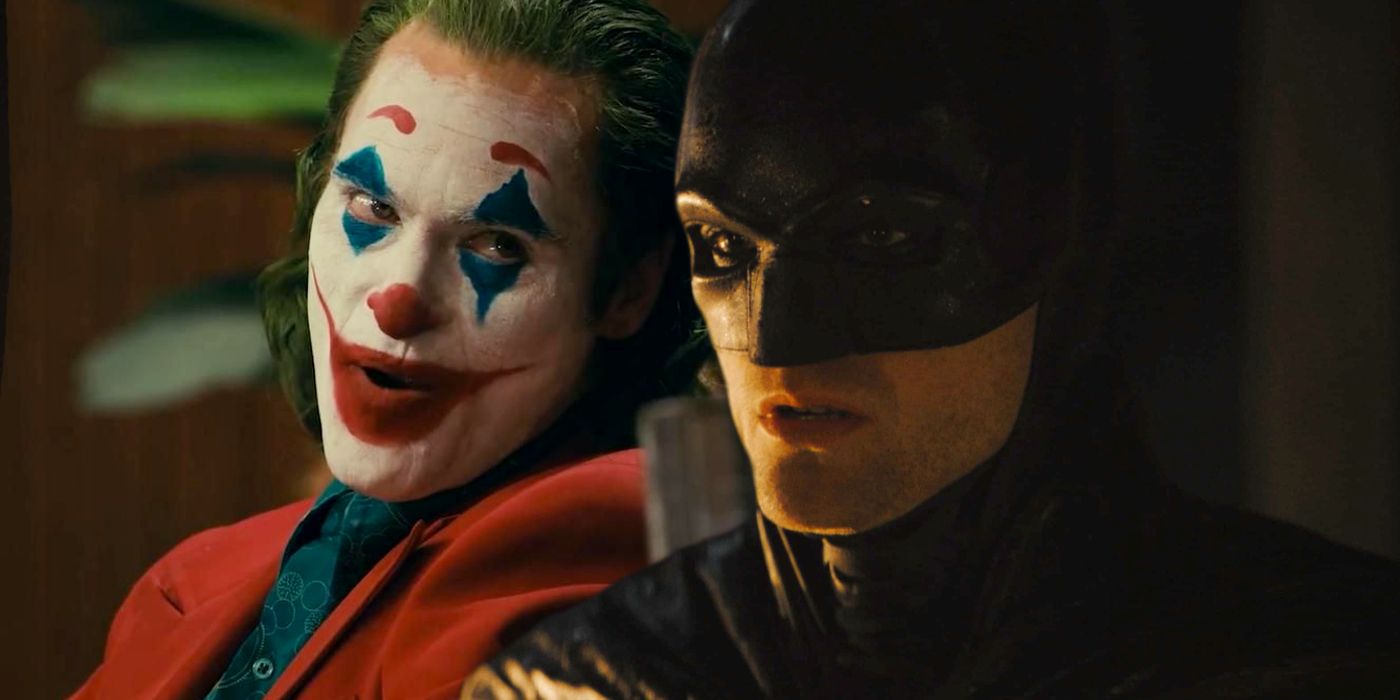






 English (US) ·
English (US) ·